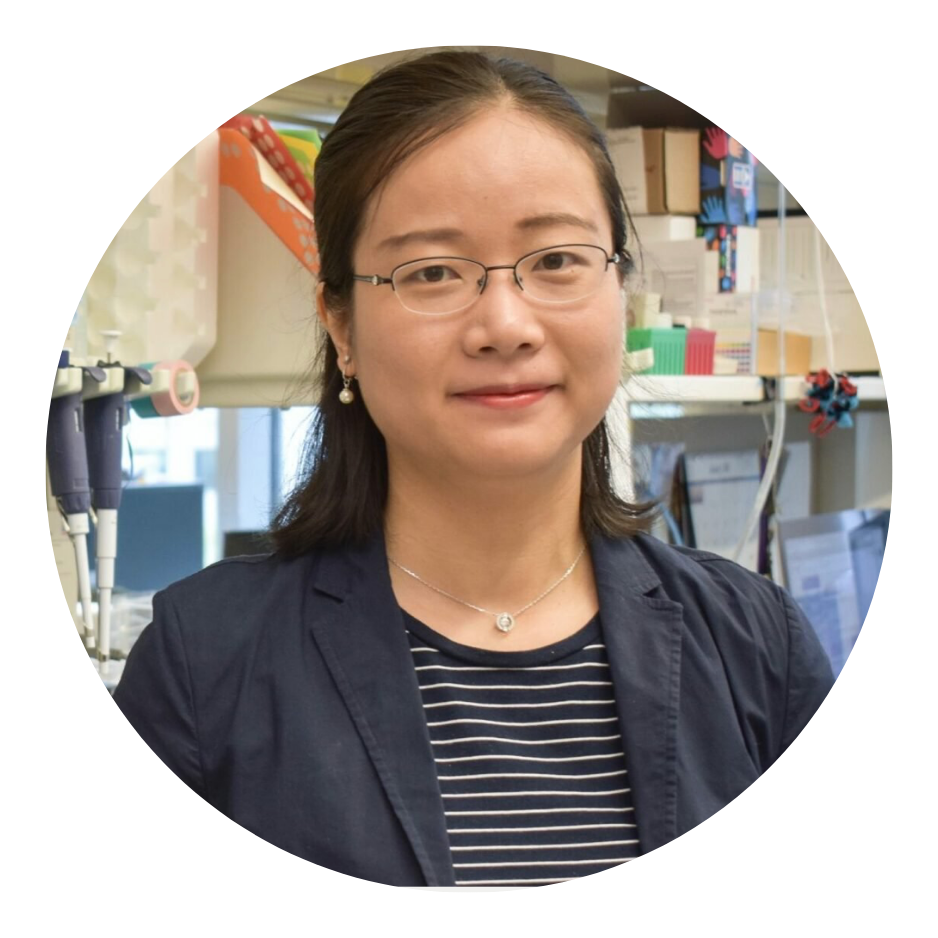Engineering microenvironment-triggered self-reporting immunotherapy
Project Description
Precision medicine has transformative impact in managing heterogeneous disorders including cancer, metabolic, and neurological diseases. At the living interface of precision engineering and health, the Hao laboratory develops molecular and cellular tools to precisely track and control disease biology in intact organisms. The specific research interests include (1) noninvasive disease detection and treatment monitoring at the Point-of-Care, (2) tissue-specific transcriptome engineering, and (3) multimodal systemic imaging.
Research opportunities in this laboratory include hands-on experiments and in silico data analysis. Experimental work includes engineering genetically or chemically encoded diagnostics and therapeutics at the nanoscale, or performing high-throughput data analysis to identify functional disease biomarkers. These projects will be part of our efforts to address some grand challenges of getting precision medicine into healthcare practice such as comorbidities, timely interventions, and access in low-resource areas. Specifically, REU participants will learn to analyze differential gene expression profile from publicly available databases, such as the Cancer Genomic Atlas and Human Protein Atlas, to propose new functional biomarkers for disease detection and monitoring. The participant will also provide hands-on opportunities for molecular and cellular experiments to construct and validate bioinspired nanosensors or programmable therapeutics.
Research projects for REU participants includes (1) cloning and expression of disease targeting moieties in the format of antibodies or antibody fragments to improve tissue specificity, (2) engineering precision diagnostics and therapeutics responsive to tissue-specific biochemical cues, and (3) mammalian cell culture-based functional validations of (2). From these research opportunities, the learning outcomes from this project include comprehensive experimental skills ranging from bioinformatics, chemical biology and molecular engineering. Students will work on a multidisciplinary research group to engage in collaborative research efforts and start building teamwork skill for advanced education. They will also receive trainings on effective scientific communication through written and oral presentations.
Mentors
| Liangliang Hao, PI | Feiyang Deng |
|
|
|
Research Goals
Learning Goals
1.1 Gain hands-on experience in molecular cloning, bioengineering, and precision diagnostic development.
1.2 Learn high-throughput data analysis techniques, including differential gene expression profiling using publicly available datasets such as The Cancer Genome Atlas (TCGA) and The Human Protein Atlas.
1.3 Conduct mammalian cell culture-based functional validation of engineered diagnostic and therapeutic tools.
2. Enhance Multidisciplinary Collaboration and Teamwork
2.1 Engage in multidisciplinary research at the intersection of chemical biology, molecular engineering, and biomedical imaging.
2.2. Work in a collaborative research environment, fostering teamwork and problem-solving skills essential for advanced education and industry settings.
3. Strengthen Scientific Communication and Critical Thinking
3.1 Develop effective scientific communication skills through written reports, research presentations, and discussions.
3.2 Learn to critically evaluate experimental results, troubleshoot research challenges, and propose novel biomedical solutions.
Timeline
Week 1: Orientation & Project Planning
Week 2: Technical Skill Development & Experimental Setup
Week 3: Initial Data Collection & Troubleshooting
Week 4: Data Validation & Optimization
Week 5-6: Midpoint Progress Evaluation & Advanced Techniques
Week 6: Technical Skill Development & Experimental Setup
Week 7: Refinement & Interpretation of Results
Week 8: Preparing Research Presentation & Report
Week 9: Finalizing Research Report & Presentation Practice
Week 10: Final Presentation & Program Wrap-Up

